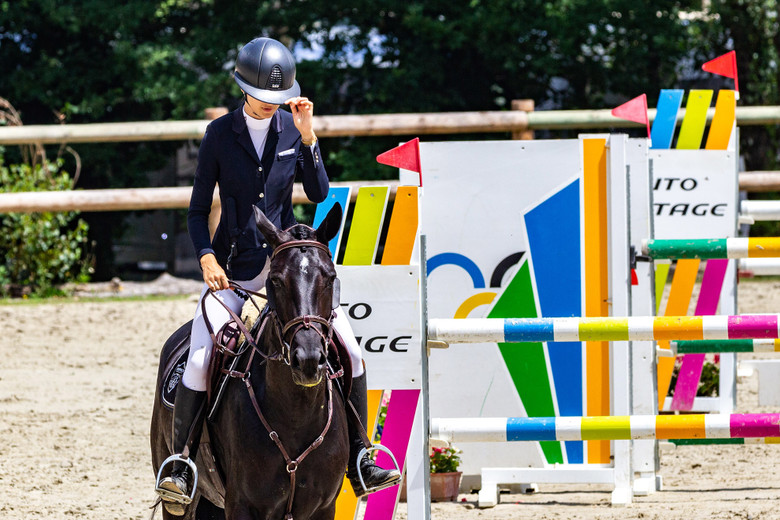Show season is back! Between now and the official end of summer, there will be an average of 40 nationally-sanctioned shows
every weekend across the country.
You may have already competed at one. How did you do? Even if you won your class, it’s always good to evaluate your performance with a cool and analytical eye. Your coach and/or trainer can certainly supply such an eye. But they can only tell you what they saw. As a constantly improving rider, you will want to develop your own sense of what it feels like for you and your horse to be “on your game.”
For this article, let’s focus on shows featuring hunter, jumper, and equitation disciplines. Here is how you can get a Winning Riders’ Mindset For Every Discipline!
Jumping for Joy
The fact that the jumper class is judged by objective standards can actually make it the greater psychological challenge. The desire to do everything exactly right at pace can weigh on your mind. Of all the disciplines, jumper is the one you really need to win in training.
Study and memorize your best take-off points relative to jump heights during training. When you arrive at the course, walk the line, calculate the strides, and identify those same spots. More than that, actually visualize each jump as if you can already feel it. This will allow you to be more “in the moment” when competing. This will also free you to focus on your speed. Your horse is likely to sense the difference too… in a good way.
This knowledge of your horse’s requirements and your own—applied to that specific course—will allow you to ride “positive.” Use your schooling time at the event to get to the place you feel most comfortable, not to try something new or address a lingering concern. The better you feel, the better you’ll ride, and the better your scores can be.
Gold Hunter
By contrast, the focus of the hunter division falls on your horse and the judging is purely subjective. This is the discipline that has riders checking out each other’s horses from the moment they arrive.
We all know that some horses just look more impressive than others, even standing still. But we also all know that the horse has to perform. Don’t allow yourself to be intimidated by a particularly impressive horse. Know that judges—while influenced by the presentation of any particular mount—also have keen eyes for the style in which a horse passes the obstacles. And this is where you, the rider, can make a difference.
Once again, training is key. In this case, you want to be able to read and feel your horse so it is the one jumping free. Also, by knowing how to communicate information—like the course route—without taking your horse out of its game, the better your horse will perform. All the braided manes in the world are no match for a horse that strides evenly between obstacles and sails over them with ease and grace.
Equitation Evaluation
Equitation is another set of subjective scores, but the rider is the one being judged. Don’t let this fact make you self-conscious. But do be self-aware. You are not being judged on how you look, but on how
your ride looks.
Position flaws like drooping shoulders, widened elbows, posting on your toes and so forth are all signs that you and/or your horse are not in sync and working harder than you should. Cycling through a running checklist of your position throughout your trip constitutes a type of mindfulness in this discipline. Concentrate on your performance, and relax only as much as you need to look relaxed.
Assuming you know what you need to do and are executing, you can start looking for advantages in your wardrobe and tack. Classic equitation looks still offer a wide range of options and ways for a rider to distinguish her- or himself. Don’t let anyone tell you this doesn’t make a difference with the judges. All things being equal, the more put-together rider will win more points.
Of course, we are glad to help on that front, with distinctive British and European competition clothing
for her and
for him.
Whatever your discipline—and whatever your stage of development—the right mindset can make all the difference on the score cards, and on the ride home.



